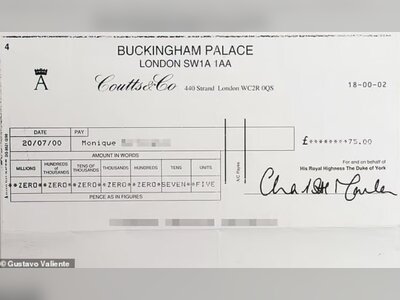10 Tips to Safeguard Against Scams When Planning Holiday Travel
Cybersecurity expert Isabel Wagner was targeted by a scammer posing as the hotel she booked with, but her expertise in data protection prevented her from falling victim.
Despite using official logos and language, the scammers tipped their hand by using impersonal greetings and suspicious links, contrasting with legitimate warnings she received from the hotel about never being asked for payments via QR codes or links.
Hackers target companies and their customers by infecting hotel systems with malware and tricking customers into making direct payments to them. BBC News reports this approach is proving lucrative.
In 2022 alone, travelers in the US reported over 55,000 cases of travel-related fraud to the Federal Trade Commission, resulting in a cumulative loss of $49 million.
To avoid falling prey to such scams during travel bookings, here are expert-recommended measures:
1. Be Wary of Urgent Requests: High-pressure tactics meant to induce panic are common in scams. Reputable services won't rush you into actions.
2. Expect Sophisticated Fakes: Even seemingly trustworthy details like personalized greetings can be imitated, so remain vigilant.
3. Never Click Suspicious Links or Attachments: Disregard emails asking for payments or personal details, however legitimate they might appear.
4. Directly Verify Uncertainties: If in doubt, independently contact the service provider using verified information, and not via contact details provided within a dubious message.
5. Caution with Online Ads: Post-research ad targeting can lead to fraudulent sites. Use VPNs and ad-blocking browsers for extra security.
6. Stick to Well-Known Booking Services: Despite the risks, established third-party booking sites with a track record are generally safer.
7. Check Reviews and Validity: Look for genuine reviews and confirm the existence of the property or service on trusted platforms.
8. Avoid Wire Transfers: Protect your finances by using payment methods that offer fraud protection like credit cards, not wire transfers or crypto.
9. Stay Secure on the Go: Be cautious with public wi-fi and always use a VPN. Use personal chargers and avoid public charging stations.
10. Use a Travel Agent: For hassle-free security, consider booking through a reliable travel agent, enjoying their know-how and resources for safe travel planning.
Regardless of your approach, staying informed and cautious during online bookings can significantly reduce the risk of falling victim to travel-related scams.
Despite using official logos and language, the scammers tipped their hand by using impersonal greetings and suspicious links, contrasting with legitimate warnings she received from the hotel about never being asked for payments via QR codes or links.
Hackers target companies and their customers by infecting hotel systems with malware and tricking customers into making direct payments to them. BBC News reports this approach is proving lucrative.
In 2022 alone, travelers in the US reported over 55,000 cases of travel-related fraud to the Federal Trade Commission, resulting in a cumulative loss of $49 million.
To avoid falling prey to such scams during travel bookings, here are expert-recommended measures:
1. Be Wary of Urgent Requests: High-pressure tactics meant to induce panic are common in scams. Reputable services won't rush you into actions.
2. Expect Sophisticated Fakes: Even seemingly trustworthy details like personalized greetings can be imitated, so remain vigilant.
3. Never Click Suspicious Links or Attachments: Disregard emails asking for payments or personal details, however legitimate they might appear.
4. Directly Verify Uncertainties: If in doubt, independently contact the service provider using verified information, and not via contact details provided within a dubious message.
5. Caution with Online Ads: Post-research ad targeting can lead to fraudulent sites. Use VPNs and ad-blocking browsers for extra security.
6. Stick to Well-Known Booking Services: Despite the risks, established third-party booking sites with a track record are generally safer.
7. Check Reviews and Validity: Look for genuine reviews and confirm the existence of the property or service on trusted platforms.
8. Avoid Wire Transfers: Protect your finances by using payment methods that offer fraud protection like credit cards, not wire transfers or crypto.
9. Stay Secure on the Go: Be cautious with public wi-fi and always use a VPN. Use personal chargers and avoid public charging stations.
10. Use a Travel Agent: For hassle-free security, consider booking through a reliable travel agent, enjoying their know-how and resources for safe travel planning.
Regardless of your approach, staying informed and cautious during online bookings can significantly reduce the risk of falling victim to travel-related scams.











